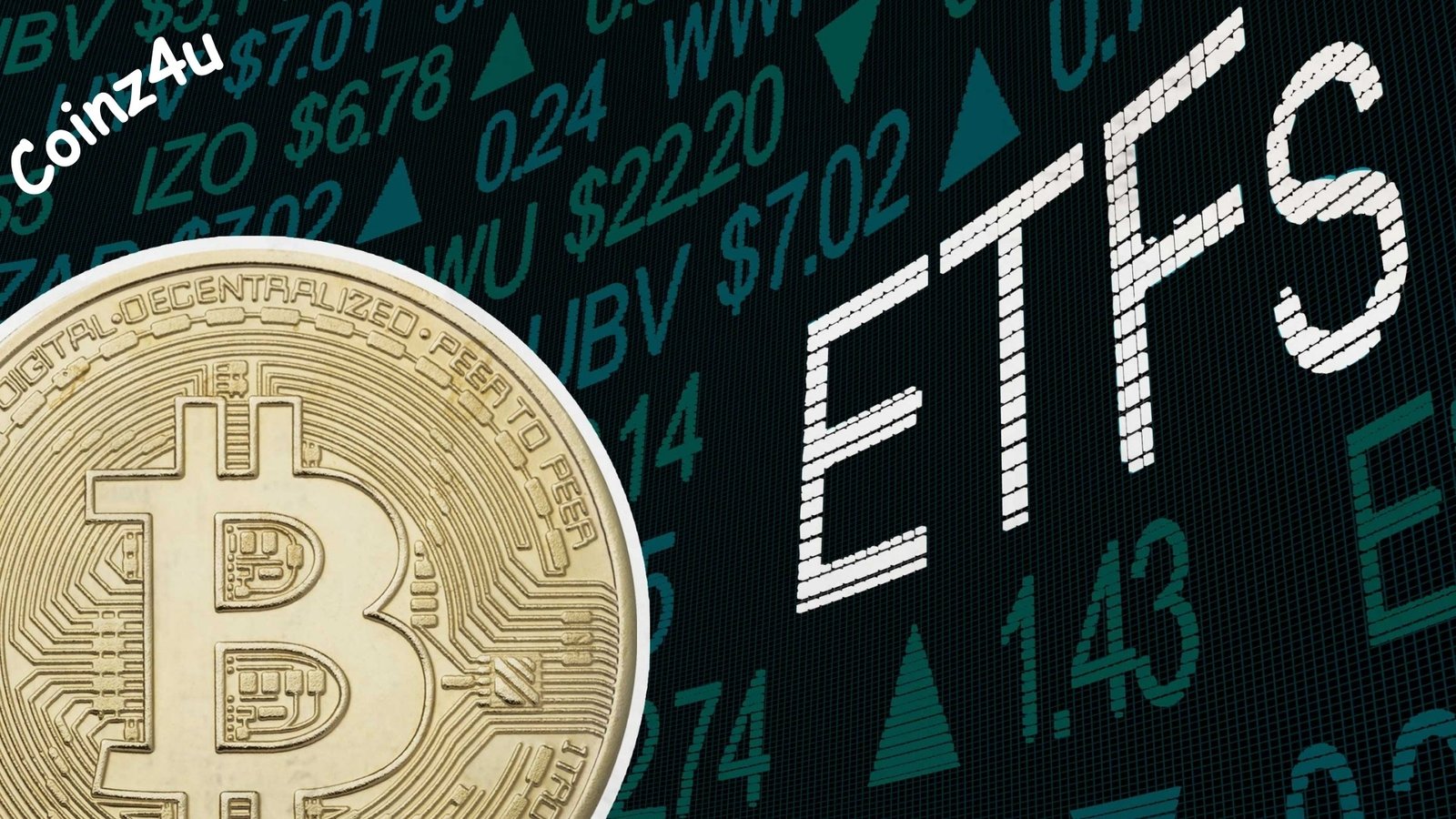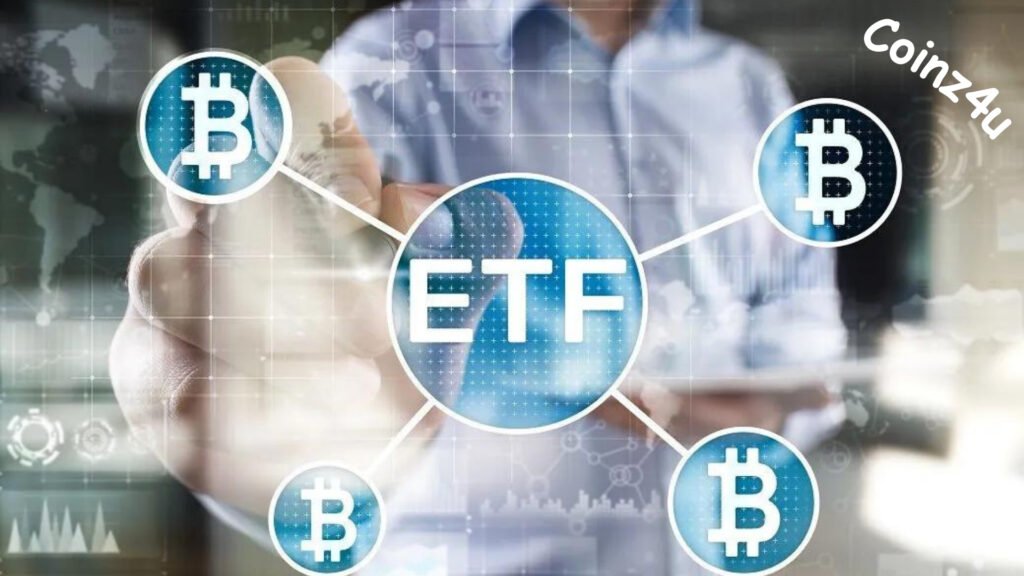Bitcoin ETFs: Guide to Exchange-traded Funds By Coinz4u. Many tax-savvy, nimble traders put their money into exchange-traded funds (ETFs) because they provide portfolio diversification without the high expense. A stock market allows investors to buy and sell shares in various asset classes through ETFs. Their features and possible advantages combine mutual funds, stock, and bond investing.
Like individual stocks, exchange-traded fund shares (ETFs) fluctuate in price during the day due to market forces such as supply and demand. Bitcoin BTC $57,068 ETFs follow Bitcoin’s value and trade on stock exchanges, not cryptocurrency exchange-traded funds. With their help, investors can buy Bitcoin without the hassle of an exchange, and they also provide price leverage. One example of a Bitcoin ETF is the ProShares Bitcoin Strategy ETF (BITO), which trades on the NYSE Arca.
Investors can hedge their bets against volatile markets with futures, an exchange-traded fund (ETF) that locks in a price for a particular cryptocurrency at a specified future date. Another way to get a taste of the cryptocurrency market without really buying Bitcoin is to invest in blockchain companies that do.
An ETF tracks the value of an underlying asset or index. A Bitcoin exchange-traded fund (ETF) operates similarly; the value of one BTC share in the fund rises and falls in tandem with the price of Bitcoin. This kind of investment would trade on a stock market similar to the New York Stock Exchange, and as the value of Bitcoin increases, so do the ETFs. Commodities and currencies are among the many assets and sectors that can now access exchange-traded funds. Coinz4u covers the benefits of these funds, how to acquire them, the SEC’s approval of ETFs, spot ETFs, futures ETFs, and more.
Bitcoin Futures and Spot Bitcoin ETFs
You can buy or sell the value of a cryptocurrency through a futures exchange-traded fund (ETF). Buying or selling futures does not give you ownership of the underlying cryptocurrency. Alternatively, you may hold a contract that commits you to purchasing or selling Bitcoin at a future date. Consequently, futures are protected from the unpredictability and price fluctuations of the market. However, unlike when you possess the currency, you can’t stake or utilize coins for voting when you trade in futures.
Spot purchases are one-time digital asset transactions that allow buyers and sellers to acquire cryptocurrencies instead of futures contracts directly. You can use it just like any other cryptocurrency exchange. Some have voiced concerns about the Bitcoin futures ETF structure, arguing that it could lead to underperformance if the price is based on BTC futures instead of spot Bitcoin. Although futures might trade at lower prices than the underlying asset, they also tend to trade at higher prices, another reason traders loathe them.
Thus, actual Bitcoin is the backing of a spot-based ETF, but derivatives, specifically Bitcoin futures contracts, support futures ETFs. Crucially, investors’ emotions can cause Bitcoin futures contract prices to diverge from the market price, and sometimes they track the price wrongly. Nevertheless, this danger is nonexistent when dealing with a spot-based ETF.
How Do Bitcoin Futures ETFs Work?

Regardless of market circumstances, when you invest in a Bitcoin futures ETF, you commit to buying or selling BTC at a predetermined price on a specified date. The contract settlement or expiration date is the mutually agreed-upon date by which the parties must fulfill their responsibilities. At the expiration of a Bitcoin futures contract, the party committing to purchase BTC must do so at a premium or discount. The term “premium” describes the futures market when the future price trades higher than the spot price.
When futures prices are lower than spot prices, however, a “discount” arises. The word is backwardation in the commodity derivative market, whereas, in the stock derivative market, the term is discount. It’s considered normal when the asset’s futures price matches its current price.
What the buyer must pay is determined by the spot price and the value of the futures contracts they purchase. Additionally, the cost of an ETF would often correlate with the underlying asset’s price movement because, in theory, investors might arbitrage away a wide disparity between the two assets.
Downsides of Bitcoin futures ETFs
The fact that Bitcoin futures ETFs’ price monitors aren’t accurate is the biggest issue with them. When Bitcoin futures prices exceed spot prices, a negative sign for futures investors known as a “contango” appears, suggesting that the exchange-traded fund (ETF) is misallocating its capital based on the price of Bitcoin (BTC). However, backwardation occurs when the future price is lower than the price of Bitcoin.
It will not be possible to purchase the same number of contracts that expire later with the money from them. The contracts will expire if the price of the new contract is greater than the price of the Bitcoin futures contract. This dilemma will consequently impact the ETF’s performance.
How Does a Spot Bitcoin ETF Work?
In a spot exchange-traded fund (ETF), the value of the underlying cryptocurrency is directly tied to its market value at any given moment. A portion of a spot Bitcoin ETF’s Bitcoin assets are purchased by investors when they buy shares in the fund. Like any other stock or exchange-traded fund (ETF), investors can buy and sell shares of the ETF through conventional stock markets. Thanks to this, investors won’t longer have to worry about the ins and outs of buying, storing, and protecting Bitcoin. Because they are regulated, these ETFs offer investor security that direct cryptocurrency investments may not.
Because of the massive trading volumes and strict futures market regulation by the Commodity Futures Trading Commission—a prime location for price discovery—Bitcoin futures ETFs are favored over spot ETFs. Canada offers Bitcoin exchange-traded funds (ETFs). Spot Bitcoin is the investment vehicle for three significant funds: Purpose Bitcoin, 3iQ CoinShares, and CI Galaxy Bitcoin. Furthermore, with assets under management of around $500 million, the 21Shares Bitcoin exchange-traded products are listed on multiple German exchanges and the Swiss Exchange. These products are 100% exposed to spot BTC.
On January 11, 2024, the SEC approved eleven spot Bitcoin ETFs, advancing cryptocurrency investment. The significant verdict follows ETF providers’ failed attempts to get spot Bitcoin product clearance. The SEC has worried that manipulating the uncontrolled Bitcoin market would endanger average investors. The following ETFs are approved:
- Grayscale Bitcoin Trust
- Bitwise Bitcoin ETF
- Hashdex Bitcoin ETF
- BlackRock’s iShares Bitcoin Trust
- Valkyrie Bitcoin Fund
- ARK 21Shares Bitcoin ETF
- Invesco Galaxy Bitcoin ETF
- VanEck Bitcoin Trust
- WisdomTree Bitcoin Fund
- Fidelity Wise Origin Bitcoin Fund
- Franklin Bitcoin ETF
This advancement opens new avenues for investors to engage with Bitcoin in a more regulated and potentially safer environment.
Investing in Bitcoin ETFs

Bitcoin Strategy ETF, traded on the Mercantile Exchange of Chicago under the ticker symbol BITO, is an option for American investors looking to gain exposure to Bitcoin through exchange-traded funds (ETFs). This fund provides a more regulated way for individuals to invest in Bitcoin’s price movements without owning the cryptocurrency.
Investors interested in purchasing BITO can create an account with one of several online brokerages, including Robinhood or Fidelity. Once the account is set up, they can choose the share price and amount. Market orders execute at the current market price, while limit orders allow investors to specify the maximum acceptable purchase price, guiding them through the acquisition process.
Whether or not a Bitcoin ETF is a good investment ultimately boils down to personal financial objectives. ETFs based on futures are potentially unsuitable for individuals with a long-term view of Bitcoin. Before committing to an ETF investment, investors should thoroughly evaluate all relevant factors, such as the possibility of a deviance from the net asset value, fund fees, and roll expenses. The money spent on rolling futures contracts is called “roll expenses” in exchange-traded funds. Roll expenses, which result from the price difference between the old and new contracts (the “roll yield”), can affect the fund’s overall performance.
Pros and Cons of Bitcoin ETFs

You can get exposure to Bitcoin’s price through an exchange-traded fund (ETF) without dealing with cryptocurrency exchanges, learning how Bitcoin works, or taking on the risks of owning Bitcoin directly. Bitcoin futures and spot ETFs make investing in Bitcoin more accessible than ever without losing your wallet password. In addition, investors can diversify their holdings and lower their risk exposure by purchasing ETFs that combine multiple assets, such as Google stocks, Bitcoin, and others. Since Bitcoin futures ETFs are SEC-regulated and trade on traditional exchanges, tax efficiency is an option.
Management costs will be high if there are a lot of Bitcoin ETFs. Investors benefited from lower fees due to competitive pricing among issuers, sparked by the SEC’s simultaneous approval of multiple spot Bitcoin ETFs. Spot Bitcoin ETFs, like Bitwise’s, provide much lower fees, with a proposed rate of only 0.20%, in contrast to current crypto funds like Grayscale trusts (2-3% fees) and the most significant Bitcoin futures ETF (0.95% fee). To entice investors, this growing market needs this fee competition.
Furthermore, because an ETF holds multiple assets, price inaccuracies could occur if the price of Bitcoin rises or falls. Also, you can’t trade one digital currency for another in exchange for a Bitcoin ETF since an ETF isn’t a cryptocurrency but an investment fund that follows the price of BTC. The benefits of Bitcoin, such as decentralization and security via the Bitcoin blockchain and the elimination of intermediaries, are unavailable in a government-regulated exchange-traded fund (ETF).
Alternatives to Bitcoin ETFs
One way to gain exposure to the cryptocurrency market is to own Bitcoin. You can buy Bitcoin (BTC), Ether (ETH) ($2,874), or Tether (USDT) ($1.00) directly from cryptocurrency exchanges like KuCoin, Binance, or Coinbase if you’d instead not invest in Bitcoin ETFs. Coinbase and other public cryptocurrency exchanges also allow you to purchase shares. You can get exposure to blockchain technology without investing in the currencies through these exchange-traded funds (ETFs).
Bitcoin ETFs vs. Blockchain ETFs
Although Bitcoin ETFs are still in their infancy, the number of ETFs focused on blockchain technology is increasing. Blockchain technology is also not under investigation by authorities. However, some countries severely restrict or outright ban the usage of digital currencies.
Bitcoin exchange-traded funds (ETFs) follow the price of Bitcoin and are traded on regular stock markets. On the other hand, blockchain exchange-traded funds follow the stock prices of companies that invest in blockchain technology. One example is the Bitwise Crypto Industry Innovators ETF.
Future Outlook
Investors looking to diversify their portfolio amidst the ever-shifting cryptocurrency market can consider Bitcoin ETFs. Buying and selling ETFs through a preferred brokerage is easy since it is similar to trading shares.
Now that these funds have received approval from the SEC, they will connect traditional finance to the expanding Bitcoin economy, making regulated investments more accessible. However, there are challenges along the way. Authorities must find a way to balance investor safety and innovation with Bitcoin’s volatility and unpredictability, which means more regulation.
Increased competition among ETF providers will likely result in more variety and lower prices. With this update, Bitcoin’s popularity will skyrocket, opening the door for it to join more conventional financial portfolios. Still, Bitcoin ETFs will face ongoing challenges from cryptocurrency market dynamics and inherent risks.
[sp_easyaccordion id=”3633″]


